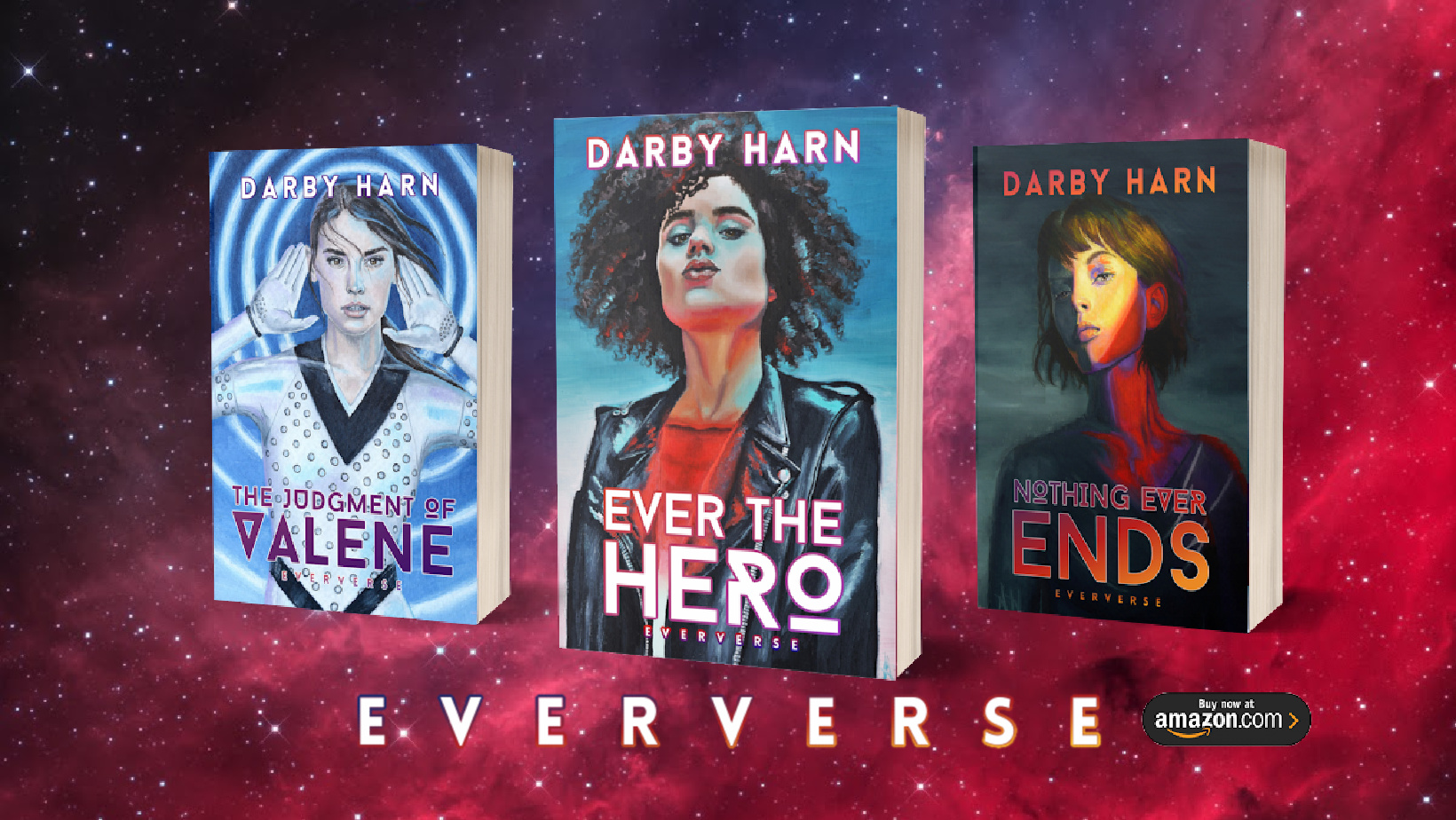
Ever The Hero was inspired by
On January 6th, terrorists attacked the United States Capitol with the intent to subvert and destroy American democracy. People lost their lives in the fight. Several were severely injured. The investigation into the planning and execution of this attack continues, with disturbing if obvious conclusions coming to light every day. Beyond the shock and sorrow I felt as an American watching this attempted coup, the event also disrupted my plans for the Eververse. At the time, I was fitfully in the early stages of a rough draft for the fourth book in the series. The book features The Interdictor as the POV figure, and as readers know, he’s a strongman if there ever was one. My original plan was to both explore the nuances of The Interdictor and also continue to examine what it would ‘really be like’ for a figure like this to exist in the real world. The natural conclusion for me at the time was that a person with superhuman power and such a caustic ideology would inevitably end in violence. I have been tired of violence and ‘grown-up’ approaches to superheroes for decades, but in the moment, the shadows in my own life made it hard to see that I was actually repeating some of the same mistakes the genre had made in the wake of landmark works like Watchmen and The Dark Knight Returns. Comic books are replete with ‘grim and gritty’ takes on superheroes, charitably called more mature takes, especially in the thirty-plus years since Alan Moore, Frank Miller, and others revolutionized the genre. Many writers and artists took the wrong lessons from these works, as Moore himself has often lamented in interviews. This is best exemplified in current media by the Zack Snyder iteration of the DCEU, and The Boys. The original Boys comic is a violent, over-the-top indulgence to a strain of nihilism that infected modern superhero comics in the 90s and early 2000s. It does its female characters no favors whatsoever and mostly seems a forum for the creative team to work out unconscious anxieties about sex and violence. There is no similarity whatsoever between the comic book series and my novels, beyond perhaps a consideration of what superhuman people would do in the ‘real world.’ I never read the comic when it first appeared because I was exhausted of a brand of comics that had taken all the wrong lessons from Watchmen. Watchmen asked what would happen in a world where superheroes really existed? Most comics with a stated debt to that classic echoed its violence, and in some cases, its sexual themes – though often through titillation, which was not the case in the Watchmen. None of them, to my mind, ever genuinely asked the question: What next? Ever The Hero I felt did a good job of that. It was a rejection of simplistic and nihilistic properties like The Boys – both the comic and the show – a rejection I was keen to make going back to when the novel was a TV pilot script I wrote, then called The Keepers. The pilot made it into the second round of the Austin Film Festival in 2016. By the time I got to book four in late 2020 and early 2021, I wasn’t asking that question. I couldn’t imagine what would be next in a world beset by social unrest, a pandemic, and a slow-motion coup. I fell into the same trap as these books I had been criticizing and I was just following the current of darkness in The Interdictor. The plot of the fourth book involves some intrigue I won’t spoil here because elements of it remain intact in the current version, but it would have ended with The Interdictor destroying Washington D.C. Instead of simply threatening to impose his will on the world, he finally did, in a way that was instantly impossible after January 6th. The images were too similar to what I intended in the book. The violence, fear, and shock of the reality of an American coup were too sickening for me to consider replicating, or risk some people appreciating, in the novel. As that day drew to a close, so did any notion I could go forward with that version of the book. That left the entire series in limbo for a moment. I was also having issues with the third book, Nothing Ever Ends, and it turns out they were essentially the same problem. I wrote about this in another blog post earlier this year. As the series evolved through the last five years, it started to reflect the darkness of its moment more than the light I intended to shine on its subjects. I never wanted these books to despair. I never wanted them to echo comic books in any real way, but tell a story about the inequities in society through the lens of people with infinite power. For the book at least, January 6th was a blessing. It forced me to pause and take stock of my work. It forced me to see what I was doing with clear eyes, in the way I hope the events of that day did for those who may have questioned the lies surrounding the election. I found new footing with The Interdictor. I found a new direction for his story. The book still deals with these questions – what is the attraction of strong men? Why do people invest in such obvious lies? How do people ignore such obvious villains? – but it’s a much better book. It’s the book I wanted to write. The question I wanted to ask. I am just now finishing revisions on book four, which if everything stays on track, will be out in 2023. Perhaps the year ahead will change the story more, but I really hope it doesn’t. 


